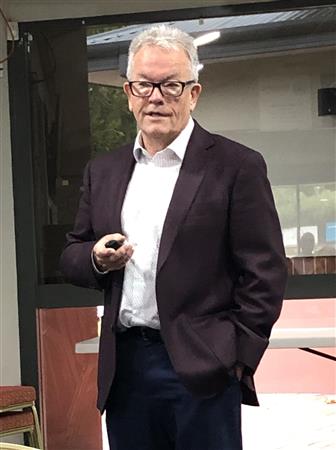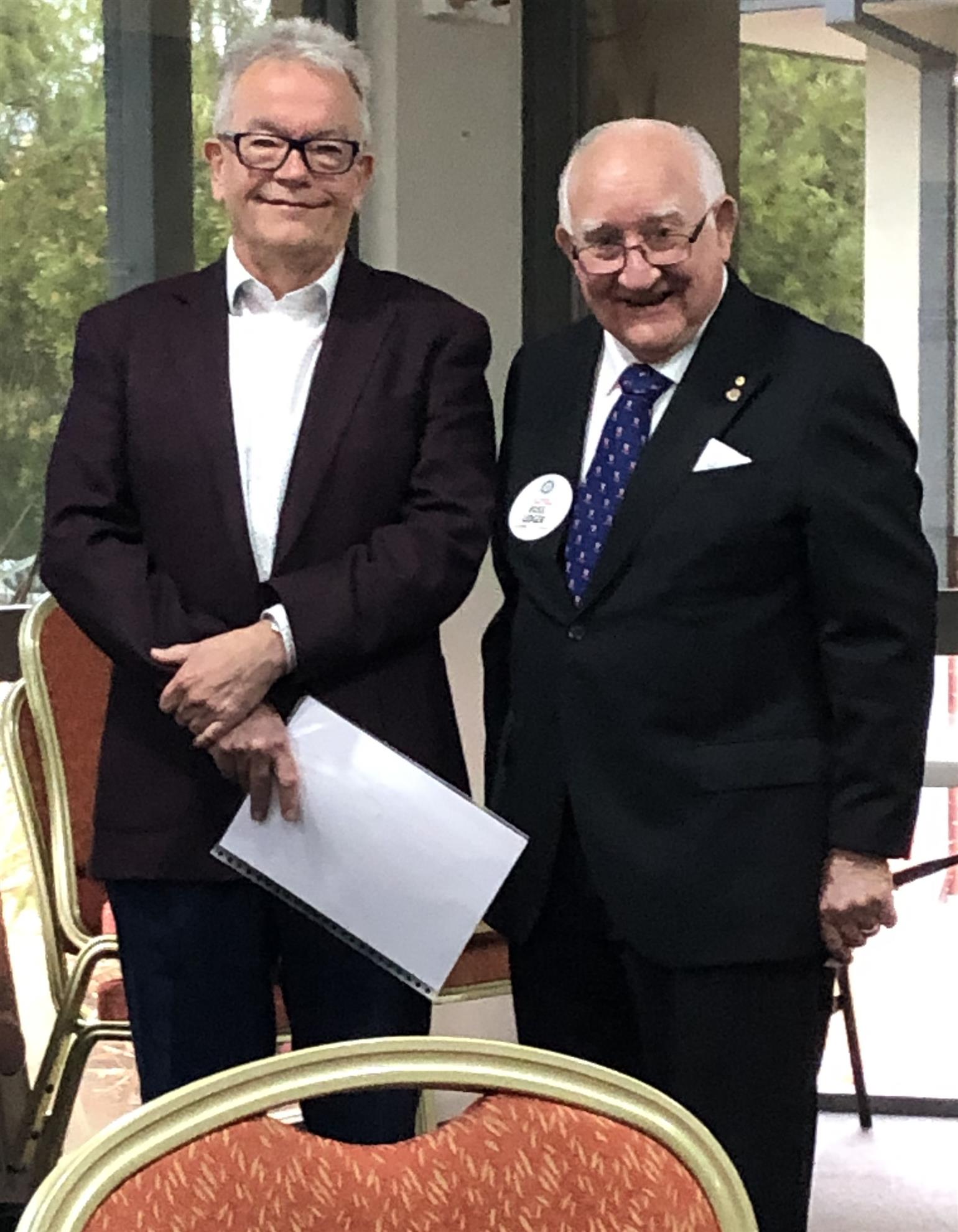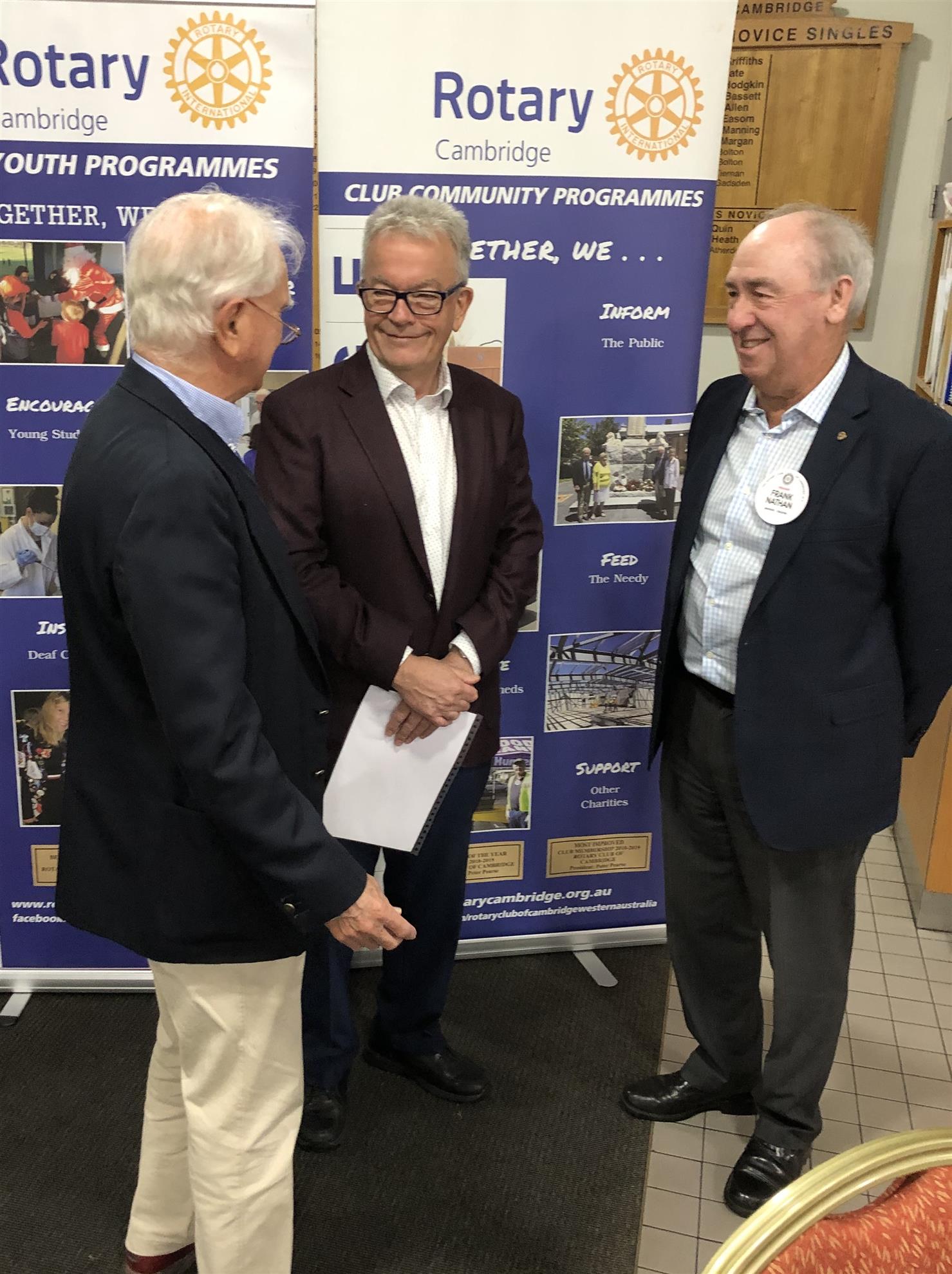

 Emeritus Professor Alan Harvey, neuroscientist, musician and Honorary Fellow at the Perron Institute, spoke about the beneficial effects that music can have on an individual’s wellbeing. The modern human species is around 100,000 years old, and the last wave of migration out of Africa had basic language and music with which to communicate, thus spreading the concepts around the globe. Musical instruments date back about 50K years, and music exists because it is arousing, stimulating and rewarding. Interestingly music is a human behaviour just like language and speech, but it is processed in the right hemisphere of the brain. However professional musicians use both sides of the brain as they need shared networks in order to process different musical actions at the same time. Apart from changing the brain structure, music enhances the memory and fosters group socialisation, and so the resultant reciprocal altruism is a special behaviour only in humans. A study into 9 sets of identical twins, where one of the two twins was subjected to music and the other not, clearly resulted in different brain structures between them. Group music enhances good behaviour amongst children and makes them think about how they should behave whilst in company. Music and exercise enhance one’s lifestyle as we age, and they diminish the negative effects that anxiety has on our memory. The research has also revealed that exposure to music reduces the level of pain that one can experience in various circumstances, as well as having positive effects on the immune system. Little wonder, then, that the talk generated many questions, and most left the meeting humming a little tune to themselves!
Emeritus Professor Alan Harvey, neuroscientist, musician and Honorary Fellow at the Perron Institute, spoke about the beneficial effects that music can have on an individual’s wellbeing. The modern human species is around 100,000 years old, and the last wave of migration out of Africa had basic language and music with which to communicate, thus spreading the concepts around the globe. Musical instruments date back about 50K years, and music exists because it is arousing, stimulating and rewarding. Interestingly music is a human behaviour just like language and speech, but it is processed in the right hemisphere of the brain. However professional musicians use both sides of the brain as they need shared networks in order to process different musical actions at the same time. Apart from changing the brain structure, music enhances the memory and fosters group socialisation, and so the resultant reciprocal altruism is a special behaviour only in humans. A study into 9 sets of identical twins, where one of the two twins was subjected to music and the other not, clearly resulted in different brain structures between them. Group music enhances good behaviour amongst children and makes them think about how they should behave whilst in company. Music and exercise enhance one’s lifestyle as we age, and they diminish the negative effects that anxiety has on our memory. The research has also revealed that exposure to music reduces the level of pain that one can experience in various circumstances, as well as having positive effects on the immune system. Little wonder, then, that the talk generated many questions, and most left the meeting humming a little tune to themselves!